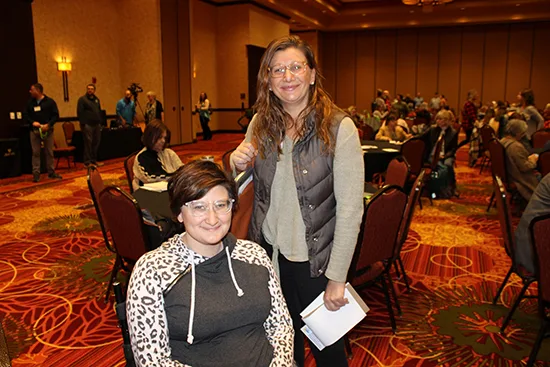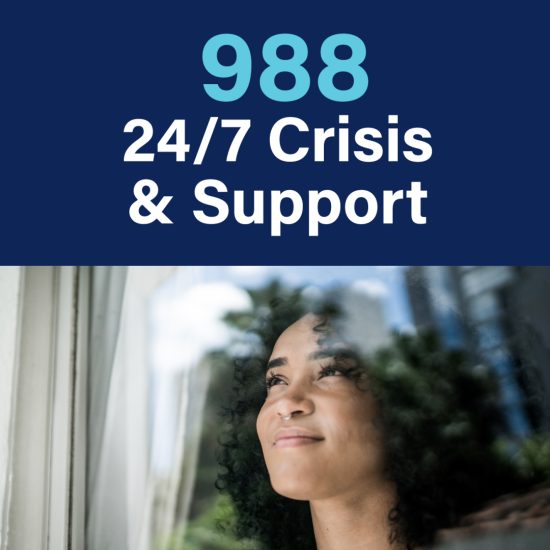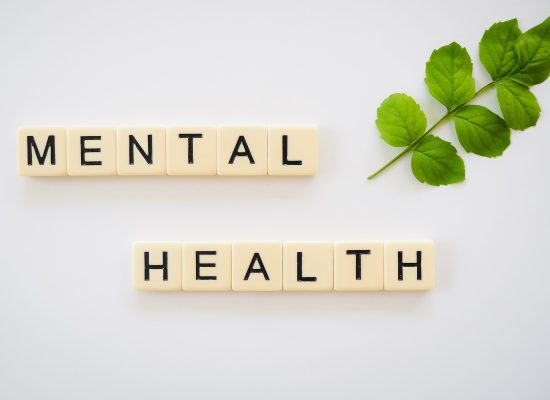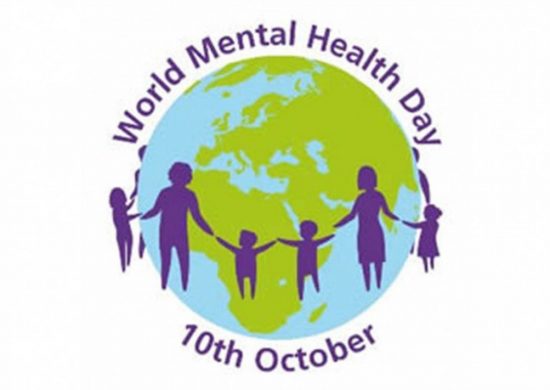Project to Improve Mental Health Support Benefits DSCC Teens

The B.E.S.T. study looks at how care coordination services that include mental health support can help teens with intellectual and developmental disabilities.
The teenage years can be a challenging time for all teens, including teens with intellectual and developmental disabilities (IDD).
Is your teen or young adult feeling sad, stressed or overwhelmed?
Consider joining the B.E.S.T. study. B.E.S.T. stands for Behavioral Health Stratified Treatment (B.E.S.T.) to Optimize Transition to Adulthood for Youth with IDD.
The B.E.S.T. study wants to know if care coordination services combined with mental health programming can help teens with IDD live happier and healthier lives.
All Division of Specialized Care for Children (DSCC) participants receive care coordination services. B.E.S.T. study participants receive access to additional behavioral and mental health resources and support.
DSCC participant Lily Kohtz, 19, (pictured on the left in the above photo) says her mental health has improved since taking part in the B.E.S.T. study.
Lily has spina bifida, uses a wheelchair and has difficulty with anxiety and depression due to her disabilities.
“I think a lot of people don’t connect anxiety or depression to having a disability,” she said. “The B.E.S.T. study has helped me talk about these things. We all have bad days, but depression is worse. Understanding how disability and mental health are tied together and having strategies to use to help me cope has really helped me.”
Lily says she’s enjoyed the online group sessions, where she now meets monthly with four other teens and a group leader. All meetings are confidential.
“We go over coping strategies such as controlling your thoughts and getting rid of the negative. I frequently use the skills we’ve learned and feel like my mental health has improved,” she said.
Lily’s mom, JoAnn Watkins (pictured on the right in the above photo), agrees that the study has benefitted Lily in many ways.
“I’ve seen a positive difference in Lily since she started with the B.E.S.T study. She’s using the skills she’s learned, and you can really see the improvement in her attitude and overall mental health.”
The study began recruiting participants in late 2022. More than 250 DSCC participant families have enrolled in the study so far.
Eligible DSCC participants must be enrolled in DSCC’s Core Program or Connect Care Program. (Please note that DSCC teens enrolled in the Home Care Program are not eligible to participate.)
The B.E.S.T. study is a free and voluntary project. Teens can join the study if:
- They currently have a DSCC Care Coordinator and are enrolled in DSCC’s Core or Connect Care programs.
- They are between 13 and 20 years old.
- They have an intellectual or developmental disability.
- They can comprehend at a fourth-grade or similar level.
- They can read and speak English.
- They have a computer, tablet or smartphone they can use to access the internet.
- They have permission from their parent, caregiver or guardian (if they are under 18).
The B.E.S.T. study team developed the project with input from a group of B.E.S.T. Study Scholars. These scholars are teenagers with IDD who tested and reviewed all of the B.E.S.T. study materials.
Teens who join the study are put into one of two groups:
- Group A receives care coordination services as usual from their DSCC Care Coordinator.
- Group B receives care coordination services and mental health support from the B.E.S.T. team. This support is based on each teen’s needs and can include:
- Mental health education
- Online group sessions
- Caregiver education and support
The study is a virtual program that will continue recruiting through December 2025.
The B.E.S.T. study is a partnership between DSCC and the University of Illinois Hospital and Health Sciences System (UI Health), the University of Illinois Chicago’s (UIC) Department of Disability and Human Development and the UIC Department of Pediatrics.
The principal investigators are Dr. Benjamin Van Voorhees and Dr. Kristin Berg.
The B.E.S.T. study team includes mental health professionals from Illinois, California and Massachusetts. They are all working together to find a way to promote the health and well-being of teens with IDD.
You can learn more information for both teens and parents/caregivers on the B.E.S.T. study website.
If you would like to join the study or have questions, please email the B.E.S.T. study team at beststudy@uic.edu or call (833) 732-5778.
If you choose to join, you and your family can support research that helps other teens and families.
Both parents/caregivers and teens must agree to be in the study. (Note that if a teen is their own legal guardian, they can participate alone or with a parent/caregiver if they choose.)
Those who join will be compensated for their time.
We’re excited to continue our partnership on this important research project!
New Nationwide Three-Digit Mental Health Crisis Number

Individuals facing mental health crises can call 988 anytime for help and life-saving services
Starting on July 16, a simple three-digit number will connect anyone in the United States to the National Suicide Prevention Lifeline (also called the Lifeline).
The new 988 dialing code will help people facing mental health crises immediately connect to individuals who are specially trained to respond to such situations. It is available for calls (multiple languages) and text or chat (English only).
The Lifeline is free, confidential and available 24 hours a day, seven days a week.
Lifeline crisis counselors understand what callers are going through and know what local resources might make a difference. Anyone who needs support for a suicidal, mental health and/or substance use crisis may dial 988.
The new 988 number aims to strengthen efforts to transform crisis care nationwide. It will serve as a universal entry point so that no matter where someone lives, they can reach a trained crisis counselor who can help.
According to the Centers for Disease Control and Prevention, one in five Americans will have a mental illness in any given year.
The Substance Abuse and Mental Health Services Administration (SAMHSA) reports that in 2020 the United States had one death by suicide about every 11 minutes. Suicide is also a leading cause of death for people ages 10 to 34 years. Additionally, more than 100,000 individuals died from drug overdoses from April 2020 to 2021.
You can learn more about how 988 works and the support it provides on the 988 Frequently Asked Questions page.
This fact sheet also explains the basics about 988. (You can also see the fact sheet in Spanish.)
The current Lifeline phone number of (800) 273-8255 will remain available to people in emotional distress or suicidal crisis, even after 988 is launched.
Individuals may also continue to text the Crisis Text Line (text HOME to 741741). Both offer free, confidential help around the clock, 365 days a year.
You can also visit our online Resource Directory for more mental health services and support.
Resources and Tips to Promote Good Mental Health

Helpful tools and resources for individuals of all ages in honor of Mental Health Awareness Month
May is Mental Health Awareness Month.
Society often focuses on physical health rather than mental health, but both are equally important. Mental health plays a big role in our overall well-being.
Although the pandemic’s challenges have led to more conversations about mental health, talking about it can still feel difficult or out of reach.
It’s important to remember that we all face challenges in life that can affect our mental well-being.
Understanding the topic can help us maintain good mental health and be more informed when experiencing a mental health condition or crisis.
Our Division of Specialized Care for Children (DSCC) team has pulled together a few resources to help get started:
- Life can be challenging, but every day shouldn’t feel hard or out of our control. A mental health screening at mhascreening.org can help provide a quick snapshot of our personal mental health. The screening is free and anonymous. The screening results can help start a conversation with your primary care provider.
- Our DSCC Transition Tools include a Mental Health Resources tip sheet with a helpful list of crisis hotlines, service locators, videos and more.
- Mental Health America’s (MHA) Back to Basics Toolkit, available in English and Spanish, covers a wide variety of topics and tools including stress management, coping skills, recognizing when help is needed and where to find help and support.
- The National Alliance on Mental Illness (NAMI) has resources geared toward kids, teens and young adults. NAMI also provides a coloring and activity book and step-by-step guidance to help parents explore and talk to children about emotional topics or mental health challenges.
- The Illinois Department of Public Health (IDPH) has developed a new “Youth, Adolescent and Young Adult Suicide Prevention” webpage. It aims to help family members and others prevent suicide by knowing the facts about suicide, who is at risk, warning signs specific to this age group and protective factors.
- The Caregiver Action Network provides a Blueprint for Families of Loved Ones with Mental Health Issues.
Remember the National Suicide Prevention Lifeline at (800) 273-8255 and the Crisis Text Line (text HOME to 741741) are available 24 hours a day, seven days a week.
A new, nationwide three-digit number will also be available this summer for people facing mental health crises. Starting on July 16, anyone in the United States can call 988 and get connected to the National Suicide Prevention Lifeline.
More mental health resources are available in our online Resource Directory. You can also follow our DSCC Facebook page for more reminders and tips throughout the rest of the month.
Knowing the basics about mental health will help us all feel better prepared when needed. Support is out there, and recovery is possible.
Social Connection Helps Physical and Mental Health

To celebrate World Mental Health Day, DSCC promotes the importance of social connection and ways to support it.
The University of Illinois at Chicago’s Division of Specialized Care for Children (DSCC) is committed to strengthening families and building healthy communities.
We encourage our participant families, providers, community partners and all Illinois residents to join us in recognizing World Mental Health Day on Oct. 10.
To celebrate, DSCC Quality Improvement Specialist Diane Becker shares the latest research on how social connection affects both our physical and mental health:
We know that for all of us to grow, develop and thrive in Illinois, it requires us to work together as a community to remain safe and support each other.
This support includes creating opportunities for positive social connections and providing information and access to mental health support.
Positive social connections allow us to feel valued. They also provide opportunities to work together to solve problems.
Growing research shows more physical and mental health benefits to creating and maintaining these relationships. Positive connections create chemical changes that affect the immune system, nervous system, glucose levels and blood pressure.
The American Psychological Association’s article, Life-saving Relationships, provides more evidence of emotional connections and health.
The World Health Organization (WHO) is leading the conversation about mental health in positive terms and showing its connection to overall health and wellbeing. Social and environmental factors known to affect physical and mental health include:
* Food and housing security
* Safety in the home, school, work and community
* Access to care
* Connection to others
Mental health services are available throughout Illinois to offer connection and supports, even during this time of social distancing.
DSCC staff can also help you find available services and resources in your area to meet your unique needs.
Services are a safe and consistent place to move forward in adjustment or recovery to any setback, trauma, grief or loss that you may be experiencing.
Supports can also benefit anyone seeking a healthier way to work through difficult or complex emotions, to challenge negative thinking patterns or to learn new techniques.
The National Institute of Mental Health offers good information on a variety of mental health resources and assistance that are availbale if you think you may need more support.
Access to care remains DSCC’s priority.
Our team members are available to connect you with other families for peer-to-peer support. We can also share additional health supports and services in the community.
To learn more, please reach out to your local DSCC Regional Office or call us at (800) 322-3722.
You can also visit our online Resource Directory for additional support.
Featured resources include:
- Mental Health Resources Handout
- National Alliance on Mental Illness (NAMI)
- Mental Health America of Illinois
- Illinois Mental Health Collaborative for Access and Choice
- National Suicide Prevention Lifeline
- Coping With Stress
- Call4Calm Text Line
- How Teenagers Can Protect Their Mental Health During COVID-19
- Mental Health First Aid USA COVID-19 Resources
- Resources for Supporting Children’s Emotional Well-Being During the COVID-19 Pandemic
- Self-Care Inventory Tool
- The National Federation of Families for Children’s Mental Health’s COVID-19 Resources for Parents, Families and Youth
- How to Help Children Build Resilience in Uncertain Times
- Emotional Well-Being Toolkit: Resources for Children, Families and Caregivers
- Expressing, Coping, Reframing: Addressing the Mental Health of ‘Quaranteens’ in the Time of COVID-19
- PTSD During a Pandemic for Parents with Medically Fragile Children
- Young Children at Home During the COVID-19 Outbreak: The Importance of Self-Care


